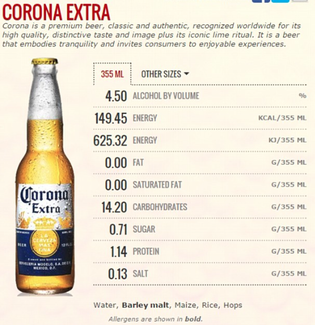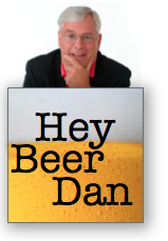Until about two years ago, BigBeer just took it. Like an overweight prize fighter pinned against the ropes, the major brands covered their faces and just endured the assault. Possibly fearing being labeled bullies, there was no counter-punching. Meanwhile, craft beer patted itself on the back for becoming--in total--larger than Budweiser.
Then something changed.
First it was Budweiser's 2015 Superbowl debut of its "Made the Hard Way" ad campaign. Abandoning years of entertainment-based ads, Bud called out pumpkin-peach ale as a stand-in for every craft beer. The King of Beers effectively mocked its countless smaller competitors as precious in their manner and odd in their flavored formulations. Product facts replaced pointless entertainment, and Budweiser saw its best business trends in twenty years.
The craft beer world whined.
This year, Heineken followed suit and, like Budweiser, abandoned entertainment-based advertising replacing it with focused, product-fact driven ads. In place of mini-movies set in distant places, spokesman, Benicio del Toro, tried to get the Heineken brewmaster to add craft-beer-like ingredients to the recipe. "No f*cking way," was the crisp response. Implied: Craft beer flavoring is un-pure.
The craft beer world whined some more.
Well, get ready for some mega-whining.
Just announced by the Beer Insititute, the lobbying group representing BigBeer, is an assault on craft beer as pointed as Budweiser's and Heineken's ads, and in all likelihood, even more effective. Rarely, if ever, has BigBeer acted in unison as they did yesterday. Anheuser-Busch, MillerCoors, HeinekenUSA, and Constellation Brands Beer Division "will provide freshness dating, and disclose ingredients via a list, a reference to a website with the information, or a QR code on the label or secondary packaging." North American Breweries (Labatt) endorsed the move, and even Craft Brew Alliance (Redhook) came aboard with its eight or so small brands. That leaves just the craft beers from about 4,000 other brewers to join the party.
Behind the consumer-knowledge motivation offered in the press release "to demonstrate a commitment to quality and transparency" (not coincidentally, two strong appeals among the millennial crowd) lies a pair of direct competitive shots against smaller brands.
First, had the move only included freshness-dating, it would have been a blow to the little guys. Freshness information can be unkind to them. A common lament of retailers and consumers alike has long been "skunky" craft beer left to languish--and deteriorate--in stores month after month. Without a clear freshness date on the label, this out-of-date beer can hide on the shelf. So the breweries avoid having to buy it back, an expense they can ill-afford. Even if craft brands choose not to add freshness-dating, beer drinkers seeing it on so many other beer labels will certainly begin to wonder how old the date-free beer brands are. Boom.
 Some of these facts will appear on all BigBeer labels
Some of these facts will appear on all BigBeer labels Between a rock and a hard place
Effective competition means finding a way to make your offering appear superior to the other guy's. Indeed, that's what "yellow fizz" was all about. In this latest move we see BigBeer--some would say, finally--firing back with gusto against the no-longer-small-in-aggregate craft beers. In baseball parlance, this is "chin music" for the pumpkin-peach ale crowd.
Welcome to the big leagues.



 RSS Feed
RSS Feed
